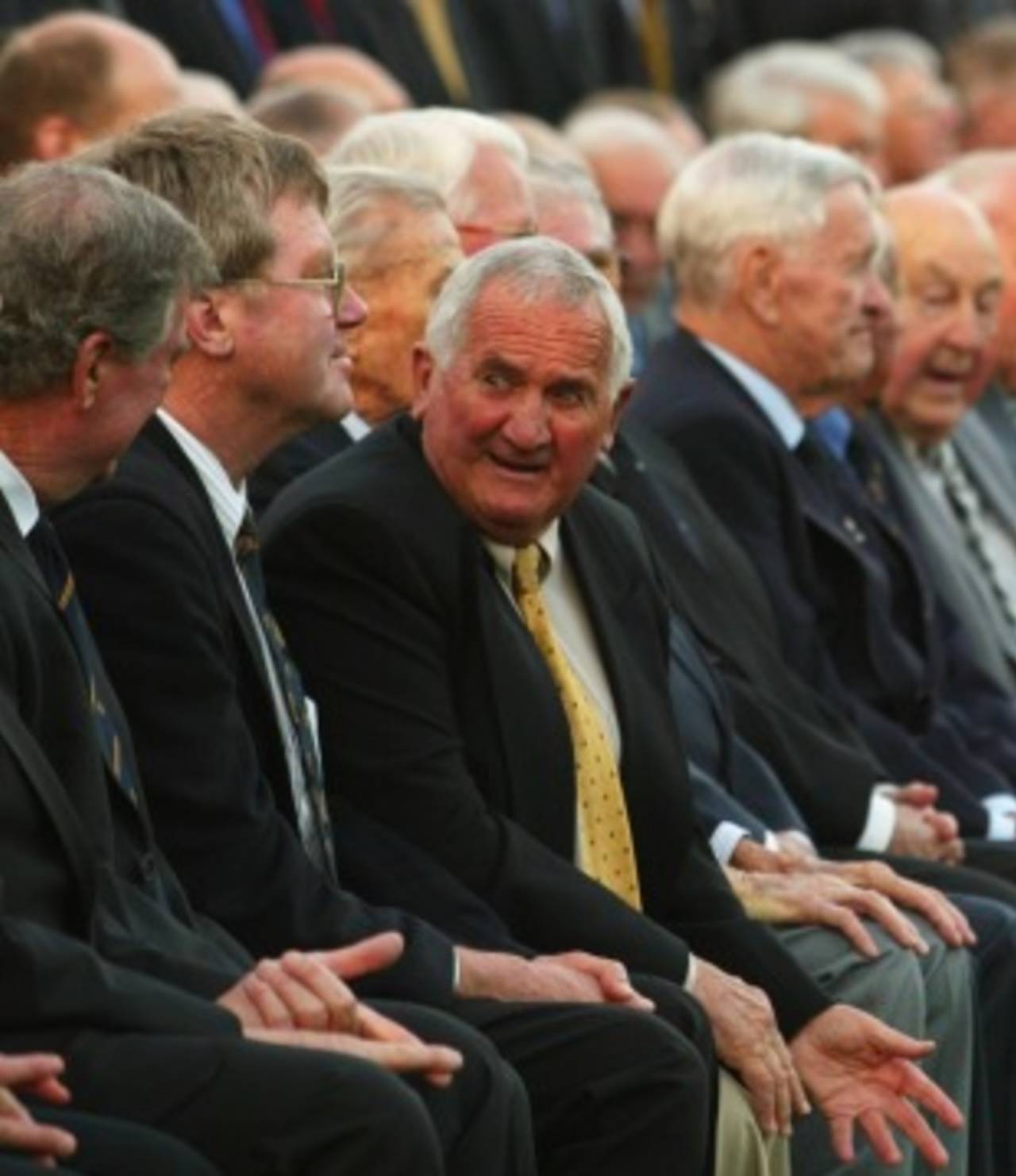Ray "Slug" Jordon, the former Victoria wicketkeeper who toured India and South Africa with the Australians in 1969-70, has died at the age of 75. Jordon, who was well known as a sports commentator and Australian rules football coach as well as for his cricket career, had struggled with ill health since suffering a stroke 13 years ago.
As a cricketer, Jordon played 90 first-class matches, mostly for Victoria during an 11-year career, and he was renowned for his work up to the stumps. The former Test fast bowler
Max Walker made his Sheffield Shield debut in 1968-69 with Jordon as captain, and he said he would remember Jordon for his "blunt, forthright" nature, as well as his skills as a player.
"He was my first captain at Victoria. I guess some people come into your life and they change the way you act and think forever," Walker told ESPNcricinfo. "The Slug had an amazing way with language. If you were on the opposition side you'd probably reckon his tongue was a bit like a chainsaw. It landed with impact and nothing was sacred or off limits."
It was Jordon's way with words - and not mincing them - that made him a fine Australian rules coach, particularly at the Under-19 level. It also made him a fascinating commentator, and his association with Walker continued when they were both part of the cricket commentary team for the radio station 2UE after their playing days ended.
"On 2UE we had Richie Benaud, Dennis Cometti, Slug Jordon and Max Walker. They were pioneering days," Walker said. "Richie Benaud and myself would walk out of the television commentary and it was like changing gears, you'd have the images up on screen and then all of a sudden on radio you had to paint the pictures yourself, and Ray Jordon was brilliant at that.
"He was the stand-out, a bit like Kerry O'Keeffe is now. What a contrast it was, Slug sitting next to Richie Benaud, but he was never intimidated by anyone in any environment and that's what we loved him for."
Although Jordon did not play a Test, he came close on the 1969-70 tours of India and South Africa, where he was the reserve gloveman behind Brian Taber. Many years later, Ian Chappell recounted in the book Chappelli Speaks Out how the captain Bill Lawry had considered picking Jordon in the Test side during the South African leg of that tour, but was persuaded not to by Chappell.
Chappell was convinced that during a tour match in India earlier on the same trip, Erapalli Prasanna had been cheated of his wicket when Jordon was standing up to the stumps to the fast-medium bowler
Alan Connolly and the ball had bounced off the keeper's pads and back on to the stumps, and Jordon appealed for bowled.
Whether that was what happened remains a matter of debate, but Chappell told Lawry he would not play in the same Test team as Jordon, and Jordon was duly not selected. Connolly, who was a state team-mate of Jordon with Victoria, said his work up to the stumps to pace bowlers was extraordinary.
"He was the very, very best keeper of fast-medium bowling on the stumps around. There were no others," Connolly told ESPNcricinfo. "I bowled to plenty of the other great name keepers but none of them had the courage to be able to stand up to the stumps and put their bones at risk like he did. He had very good hands. That was his forte, keeping up on the stumps and taking medium-pace. We had a very good rapport and he knew my bowling inside out, knew what was coming.
"He always had colourful language. Stump-mike wouldn't have worked with him, it would have had to be turned off all the time. But he really made playing cricket on a 22-yard hard strip of dirt a pleasure."
Brydon Coverdale is an assistant editor at ESPNcricinfo. He tweets here
